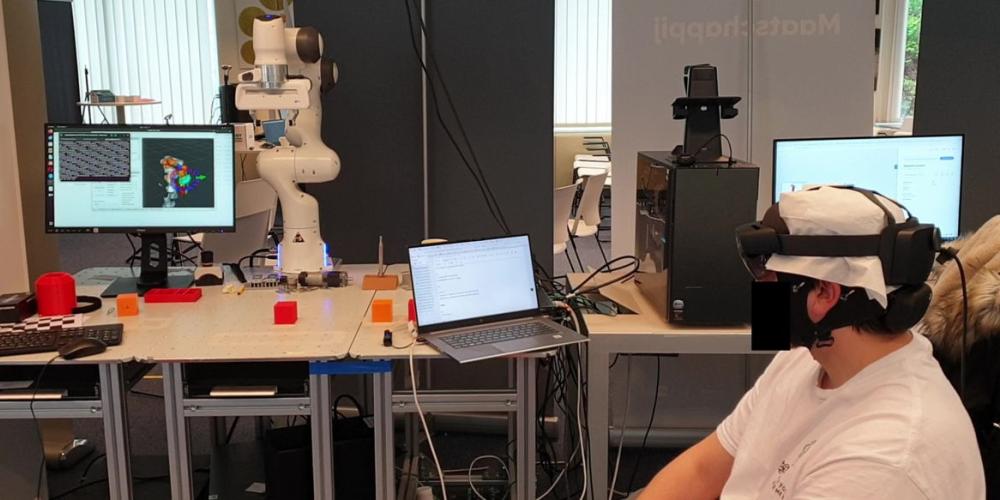
Led by Prof Kevin De Pauw, researcher Arnau Dillen from the Human Physiology and Sports Physiotherapy (MFYS) research group at the Vrije Universiteit Brussel (VUB) has developed a brain-computer interface, in which the brain controls a robotic arm. This innovative project was facilitated through cooperation between MFYS and the BruBotics consortium at the VUB with the ETIS laboratory at the Université Paris-Cergy, in the framework of the EUTOPIA European university network.
“A brain-computer interface is a connection between the brain and a computer, through which brain activity is measured and converted into commands to control devices,” says Arnau Dillen. “Unlike invasive methods like those of Elon Musk’s company Neuralink, in this research we use electrophysiological measurements – electro-encephalography or EEG – that are completely non-invasive. This makes the system much more accessible for daily use without surgical intervention.”
“This required us to first develop a method to collect calibration data and use it to train machine learning – artificial intelligence – models,” says Dillen. “The system has to be recalibrated for every user, but with this method the process is considerably faster.”
A unique aspect of the research is the integration of augmented reality (AR) using Microsoft HoloLens. Dillen: "These AR glasses use eye-tracking to select objects in the environment, while the user directs the robotic arm with their thoughts. This combined system provides an intuitive and efficient way for users to perform complex tasks." The next phase in the research is to develop the system into a software product that can be brought to market. Dillen is already seeking postgraduate opportunities and industrial partners to refine the technology.